The revitalised Spanish fuel industry calls for regulatory stability and technological neutrality to achieve decarbonisation targets
Greater regulatory clarity and equal opportunities for all sectors are the demands of an industry that has unveiled its new corporate image
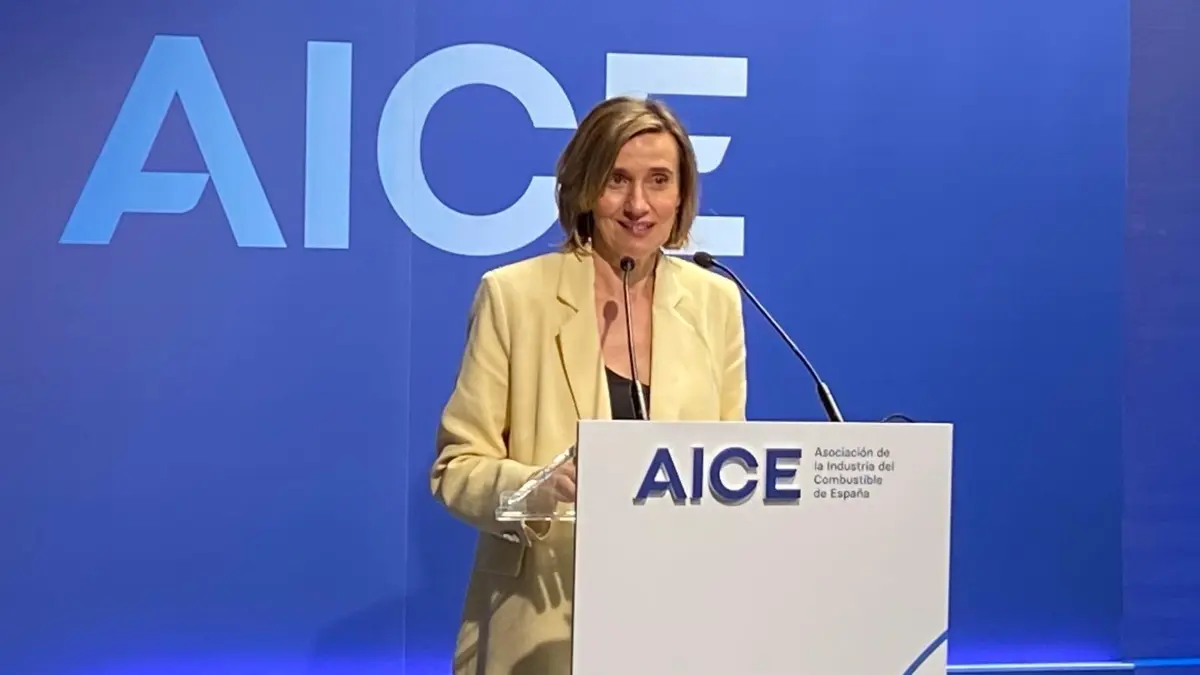
The Espacio La Salle was the venue for the conference organised by the Spanish Association of Petroleum Product Operators (AOP), entitled ‘An industry on the move: Sustainability and security of supply in the present and the future’.
At the event, the organisation presented the transformation of the refining and fuel industry, focusing on decarbonisation, emissions reduction and technological advances that enable the provision of efficient, accessible and sustainable energy solutions.
The event also served as the launch of the organisation's new name and corporate image. This surprise was announced in the closing speech by the president of the AOP, Olvido Moraleda: ‘From now on, the AOP will become the AICE, the Spanish Fuel Industry Association. We are entering a new phase, but we remain committed to defending the competitiveness of our industry and decarbonisation’.
Opening
Journalist Esther Vaquero was the master of ceremonies for a day that began with a speech by the director general of AOP/AICE, Elena Mateos, who pointed out that ‘the Spanish fuel industry is ready to respond to the challenge of decarbonisation while maintaining its competitiveness’.
Mateos highlighted some relevant figures for the sector: ‘We produce more than 50% of the energy consumed in Spain; we drive transport; we are the country's fourth largest export industry, with more than 200,000 jobs and a contribution to Spanish GDP of almost three points. In addition, Spanish refineries are leading the transformation of European industry and produce more than 13% of the European Union's energy.’
The director stated that ‘Spain has the capacity to lead the efficient energy transformation, but we need the collaboration of the political sphere. This is not a competition between different sectors, but a collective effort to achieve a shared goal.’
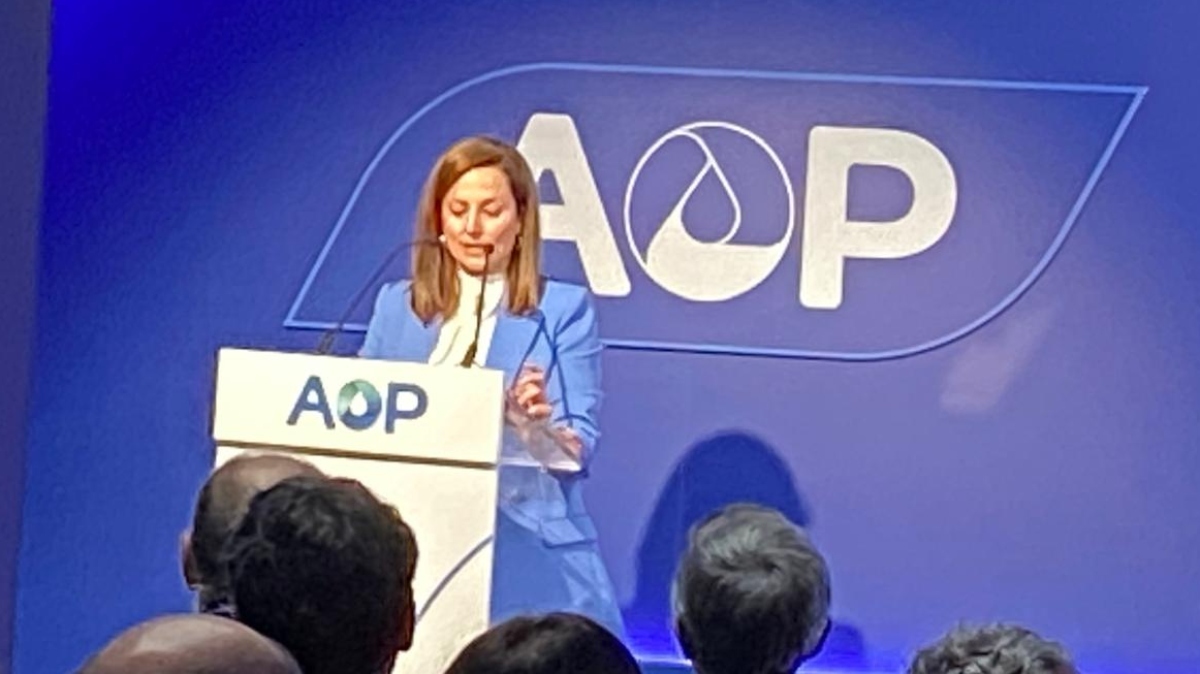
The institutional opening was given by Manuel García, Director General of Energy Policy and Mines at the Ministry for Ecological Transition and Demographic Challenge. In García's words, ‘concepts such as movement, sustainability, security, competitiveness and the time perspective are inherent to the Spanish fuel industry, which is the main energy supplier to sectors as important to the economy as transport and industry’.
For the Director General of Energy Policy, ‘due to the strong environmental impact of this sector, the Ministry is committed to introducing new fuels, biofuels produced from renewable energies, in order to reduce the environmental impact’.
With regard to European legislation, García pointed out that ‘the European Union's RED III Directive on renewable energy assigns specific quotas, which are still prudent, to the various sectors, and these will be increased from 2030 onwards, when the market is mature enough to meet demand. The Ministry is working on the transposition of this Directive, the draft of which will be released for public consultation in the coming days.’
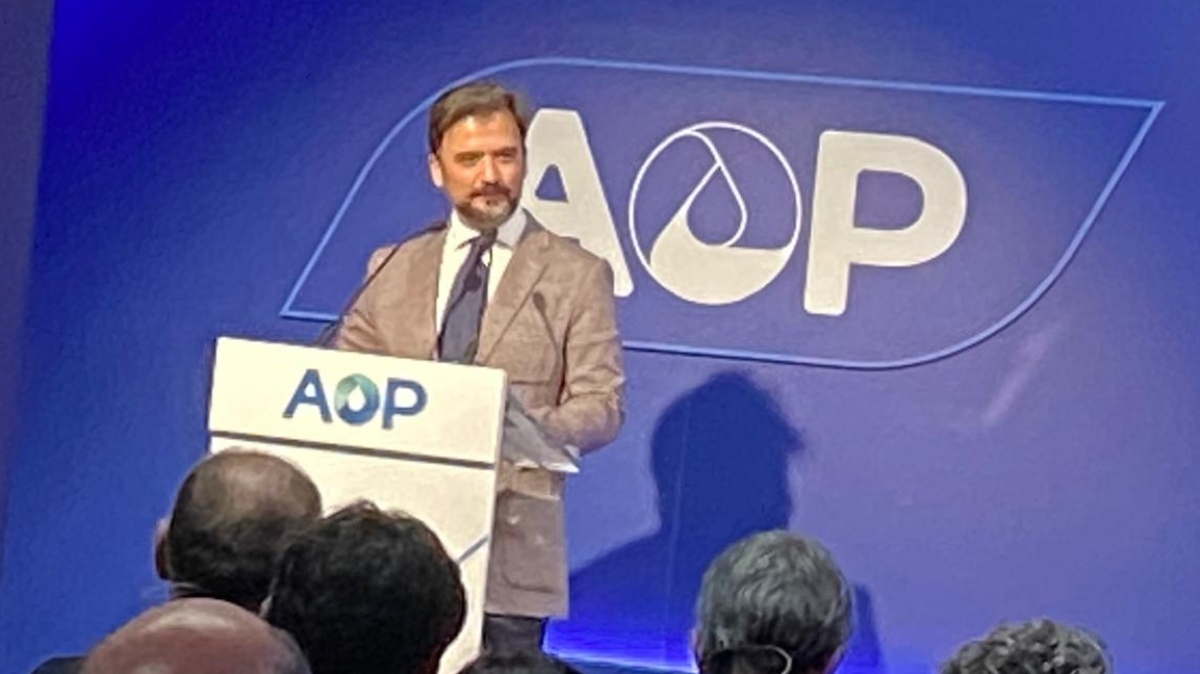
Conversation with Enrico Letta
After the opening, the event programme included a conversation with former Italian Prime Minister Enrico Letta, author of the ‘Letta Report’; Luis Cabra, president of FuelsEurope; and Olvido Moraleda, president of AOP/AICE.
In his speech, Enrico Letta explained that ‘we have a common challenge: the energy transition, with the possibility of strengthening Europe's competitiveness and autonomy. We cannot live in a world where someone can disconnect us, whether it be the Americans, the Chinese or the Indians. That is why the main objective is the integration of the single European market so that we can be autonomous.’
Letta also pointed out other major problems affecting Europe in the field of energy: on the one hand, the fragmentation into 27 hydrocarbon markets, each with its own energy mix, which puts it at a disadvantage in competition with other international powers; and on the other hand, the lack of interconnections between countries, which prevents consumers from choosing the energy that suits them at any given time.
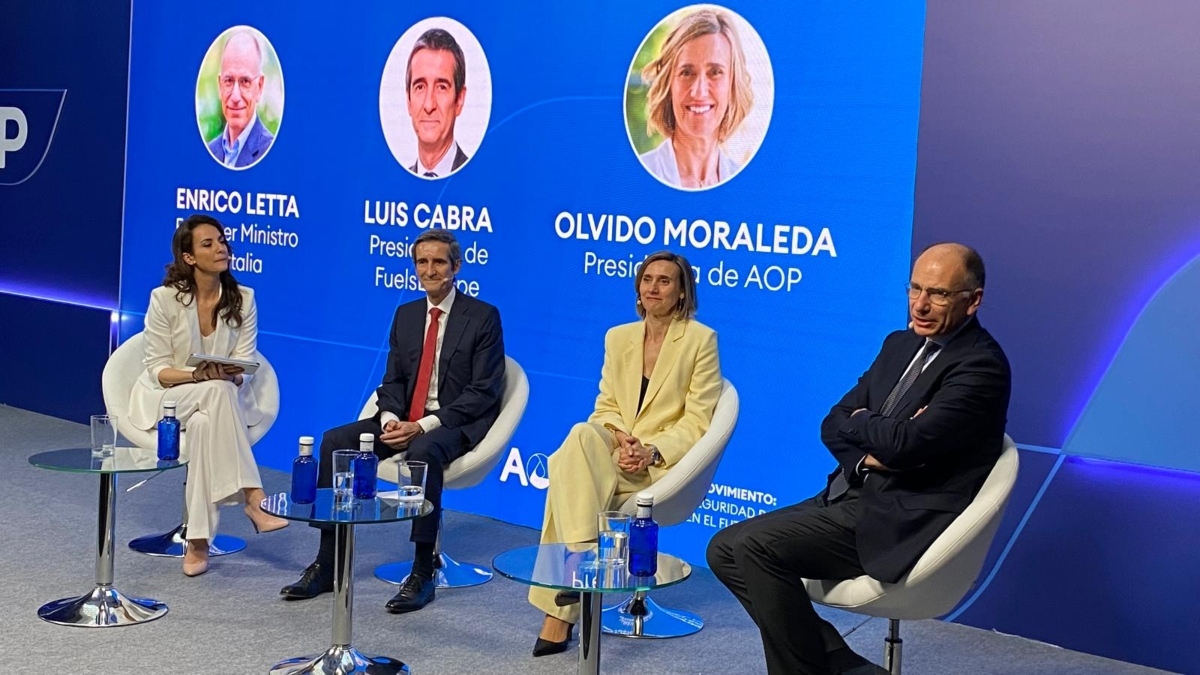
For his part, Luis Cabra, from FuelsEurope, pointed out that ‘our industry moves 97% of people and goods in the European Union, and the system must be decarbonised. It is an industry that has a value chain and has been forgotten when it comes to legislation’.
The president of FuelsEurope explained that ‘the role of regulation is to set realistic and ambitious decarbonisation targets. But the best solutions for the sector are not being prescribed, because it is being de-optimised. The contribution that renewable fuels can make to decarbonisation has not been taken into account’.
Olvido Moraleda stated that ‘strategic autonomy is absolutely key to preventing the flight of investment, capital, talent and jobs to other countries. In Spain, we have the third largest production infrastructure industry in Europe, with nine refineries that are the most efficient in Europe.’
According to the president of AOP/AICE, ‘we cannot leave this industry behind; we must support it with energy and fiscal policy. We have a great opportunity, but also a huge challenge.’
The future of the industry
This was followed by a round table discussion on ‘The future of the refining and fuels industry.’ Moderated by Esther Vaquero, it featured Estrella Jara, Director of Communications and Institutional Affairs at BP Spain; David Álvaro, CEO of Galp Spain; José Enrique Alarcón, Iberia Country Manager Oil&Products at Gunvor; Juan José Salazar, Director of Operational Excellence at Energy Pârks de Moeve; Miguel Luque, Director of Strategy, Hinterland and Operator Sales at Repsol; and Javier Albares, CEO of Saras Energía España.
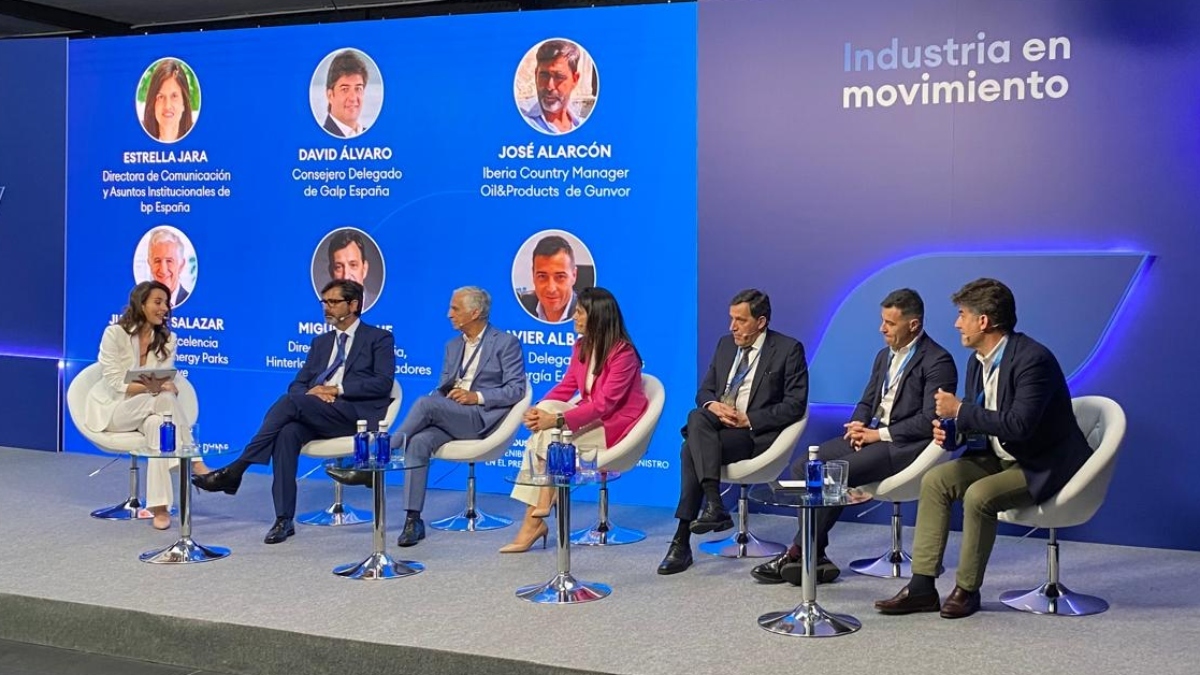
Estrella Jara stated that ‘the energy transition in Europe and the transformation of assets towards clean energies will be fundamental’ and claimed that ‘regulation is key to competitiveness, and there is a risk of fragmentation in the transposition of European directives’.
For José Enrique Alarcón, ‘we need to research and invest in alternative fuels. But this has to go hand in hand with the sectors that are going to consume them, such as the automotive and aviation industries.’
Alarcón also insisted on the need for a clear regulatory framework, stability for research, the launch of products that can reach everyone, and support for R&D.
Juan José Salazar from Moeve stressed that our company has been the most groundbreaking in the industry in terms of divesting from oil production assets, with more than 70% compared to 2022.
With regard to regulation, Salazar insisted that ‘if we want to make progress in renewable energy, we need to be more agile in terms of regulations and the transposition of directives. Right now, there is a wide range of legislation on energy generation, with different areas slowing down the process. Priority must be given to the most significant hydrogen projects.’
Miguel Luque, from Repsol, referred to his company's commitment to decarbonisation: ‘in 2019, we made a commitment to achieve net zero emissions by 2050, becoming the first energy company in the world to do so’.
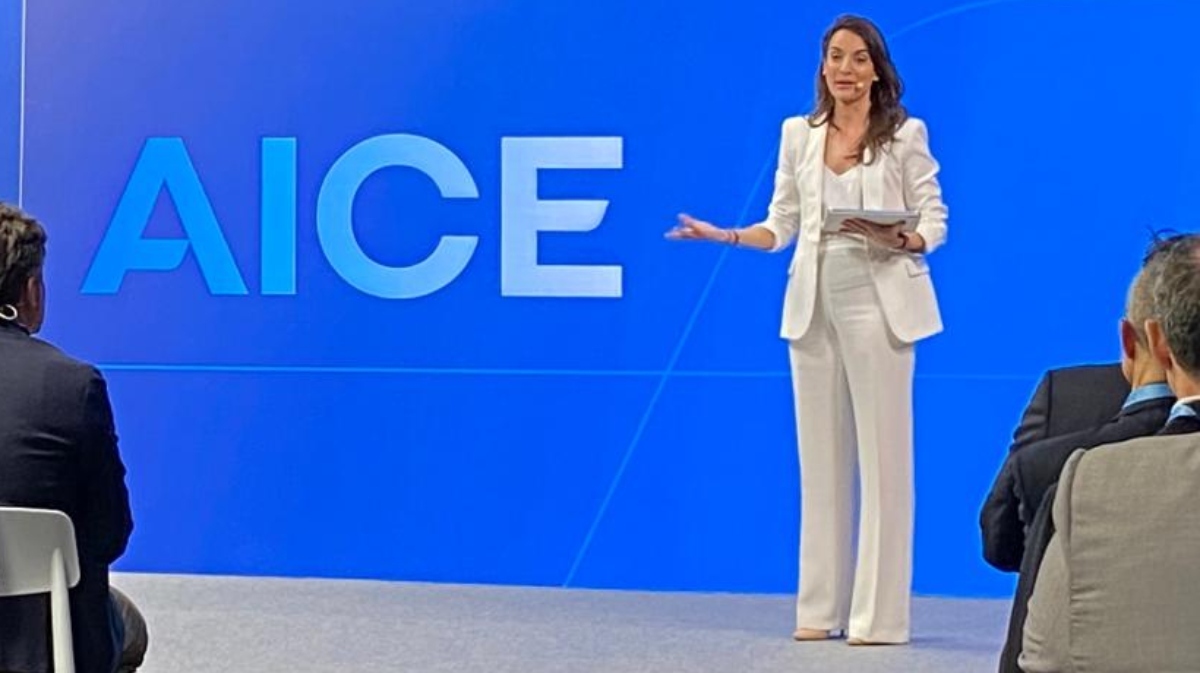
Luque also called for regulatory stability, ‘with predictable and transparent laws, because companies have to mobilise a lot of capital in the long term. In addition, technological neutrality is needed, and it must be the consumer who chooses.’
Javier Albares, from Saras Energía, stressed that ‘surveys carried out by companies in this organisation show that 65% of those surveyed believe that they are not taken into account’ and called on ‘public administrations and regulators, who are distancing themselves from society and users.’
For David Álvaro, ‘agility is essential in this sector. There is enormous legislative complexity, with identified bottlenecks, which can be easily eliminated. It is necessary to define the key rules of the game and ensure that all sectors comply with them equally’.
AICE
Following the round table, the president of AOP, now AICE, Olvido Moraleda, pointed out that ‘renewable fuel is already reducing emissions, specifically by 82% in 2023, compared to original fuels. It is an effective solution for decarbonisation and is compatible with the current vehicle fleet. It also contributes to sustainability in the use of waste.’
In addition, the president of AICE warned that ‘renewable fuels can generate 54,000 jobs in rural areas, 7% of the agricultural workforce in the last quarter, also promoting circularity.’








